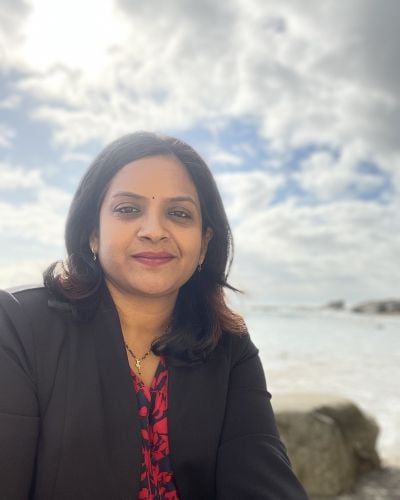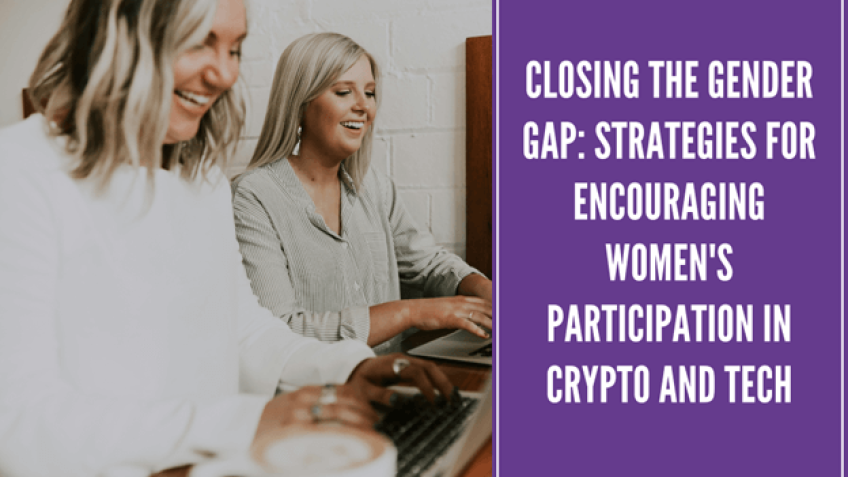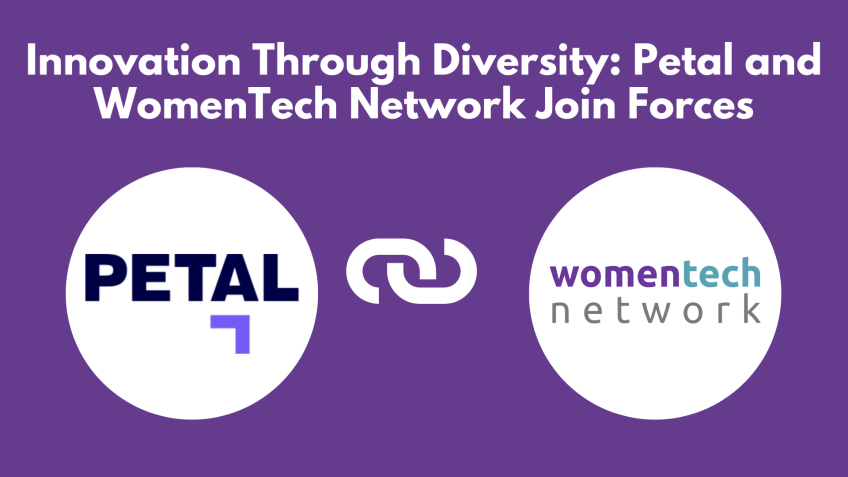Leading yourself with purpose, passion and perseverance
Anuradha Dodda
Head of EngineeringAn Inspiring Journey: Anu Doda at the Roman Tech Conference
Hi there, dear readers! Today, we'd like you to accompany us on a journey—an exceptional story from the recently concluded Roman Tech conference. It's the story of an extraordinary woman, Anu Doda, who in her distinctive manner, shared her inspiring journey.
Embracing Challenges: Anu Doda's Perspective
Anu Doda, a successful engineer leader, mentor, and more than anything, a proud individual of South Asian ethnicity and cultural background, delivered a powerful lightning talk at the Roman Tech Conference. She shone a beacon of hope on adversity, challenges, and unpleasant circumstances.
Anu emphasized the importance of sharing experiences, learning from challenges, and above all, helping each other out. While she graciously invited questions, she cleverly mentioned that the limited time left the room for personal offline meetups.
From a Small Town to Global Recognition
One can't help but admire Anu’s tenacity born out of her humble beginnings. Growing up in a small town in southern India, Anu was the first in her family to pursue education beyond the basic level. She defied the odds in a family where education was thought to be only essential for one to navigate life, not necessarily change the world. But her story is evidence of how a modest start and unceasing determination can result in world-altering achievements.
The Challenges and Triumphs of Education
Anu displayed an unflinching dedication to education despite the common societal expectations to marry at a young age. Her love for math and fear of blood led her to a decision that would shape her future—becoming an engineer. A decision she describes as, perhaps, "the best decision ever."
In her story, we find a resilient woman who maneuvered unfathomable challenges, such as studying many subjects in English, a language alien to her until then, and living independently in a city away from the warm confines of her small hometown.
The Road to Perseverance
The most compelling part of Anu’s narrative is her drive to keep going, a determination fueled by her aversion for the alternative: a life dominated by early marriage. Against the odds, she graduated and became a computer science engineer, but not without facing yet another trial—standing up to lecture in front of a class in English. But Anu, ever the fighter, didn't back down. In conquering her fears, she discovered a powerful truth that illuminated her life. She learned that she could continually grow and better herself and found humility in the persistent necessity for personal growth. This discovery became her guiding principle as she navigated different roles and opportunities in foreign lands.
Overcoming Work Challenges
There were significant roadblocks along her professional path, from individuals unwilling to report to a female superior to having to consistently prove her capacity. Yet, Anu was undeterred. She counteracted these adversities with a few strategic moves:
- Volunteering for stretch assignments to demonstrate her aptitude.
- Fostering a network of mentors and influential circles.
- Seizing risks and learning from the outcomes.
- Expressing how certain behaviors affected her.
- Realizing the need to effect changes within her environment for others' benefits.
The Perseverance Mindset
Anu’s story paves the way for countless others. In her words, "people representation matters, and we all need to persevere the path for those behind us". Emerging out of adversity demands a growth mindset—an understanding of when to challenge oneself, when to defy the environment, and when to carry on with courage and clarity.
Be the Change
Being the woman of South Asian ethnicity that she is, Anu isn't merely striving to overcome the barriers encountered by those from similar backgrounds—she is challenging the structures that create these barriers. She emphasizes the need to "be the change", to enable an easier path for those who follow.
In conclusion, Anu Doda's story is in itself a testament to the power of perseverance, of the ability to turn fears into stepping stones for growth. It's a celebration of representation and a call to continuously challenge oneself and one's environment. We thank her for sharing her inspiring narrative.
Video Transcription
Welcome everyone. It is my pleasure to speak on this topic on a global platform like Roman Tech conference. I thank you all for joining the session. Uh Feel free to drop your questions but know that this is a lightning talk and, and we only have 10 minutes here.So we'll take questions if there is any time left. Um But feel free to reach out to me offline as well. My name is Anu Doda. I identify myself as daughter, wife, mother, engineer leader, and a mentor and more so as someone from South Asian ethnicity and cultural background and I'm proud of every bit of it. Look, there is no question about how it is not easy for any of us out there. And that is something we all need to share with each other, learn from each other and more so help each other out. However, that is not what we are talking about today here full rather I want to give you all um a different perspective about how I view the challenges or adversities in retrospect more. So in two parts, one about oneself, like myself, yourself and the external environment, including other people and provide a perspective on approaching them from what worked for me. So I hope that inspires some of you and brings clarity for you more.
So helps you to perceive the path we are on. I was born in a small town in southern part of India as the first kid in my generation to a family where there is not a lot of education, to my luck, they believed in education but not to an extent where they wanted me to become someone or change the world, rather learn enough to navigate my Children in future.
And that is a good enough of a start is what I say now upon reflection because starting somewhere is the beginning as a middle class family in our society, my parents priority at the time was to get me married sooner than later. So while they were on their mission, I kept my focus on the education and finished senior school. And at that point, my parents agreed to let me continue with further studies, partly because they couldn't find um a suitable match and partly because I was doing well and I wanted to continue. And so I was able to continue my studies, given my love for math and fear of blood. I chose engineering as my major. I'm pretty sure you've, you've heard from the people from India that you know, from that generation, like there are only two ways to go. Either you become an engineer or you become a doctor. And so I was able to continue my studies given uh my love for math. Noticed how I li I, I made a life turning choice um, uh around a couple of simple, using a couple of simple aspects, I guess. But that is ok too. At least it turned uh, ok for me and maybe the best decision ever.
Um, the important thing for me was to keep going at it. I have no idea what I would become or, um who, but I made a choice using whatever reasons I could find and owned it. And that is important. Well, getting into engineering was ok, what came with it is the need to study a whole lot of subjects in English. Um, and also live in a different city on my own without my parents um, for a girl who studied in the medium of her mother tongue up until that point and has never left the shadows of her parents or the hometown. Um It is a pretty big deal rather than giving it. I decided to fight my fears and work on myself because I did not like the alternative of going back home or kind of eventually getting married. So that helped me to work on those fears. So I graduated as a computer science engineer. However, those were not the days where the internships or the jobs would be available at the door of your college or something like that. At least not, not where I was. Um So at the same time, my ambition to be independent and support my family financially kicked in. So I had to do something about it. And so I did, I took the job as an assistant professor uh in my college. But there comes my next big challenge.
The need to stand in front of 60 students and lecture for an hour in English. Remember that was not my first language. Moreover, I come from a culture where I am not sure to not speak openly and not speak louder. And so you know how hard that is, but I worked on it because I wanted to pursue my pass, pursue, pursue my ambition uh at that point. So I was really hell bent on making it work. So I worked on it in hindsight and there are so many things like that and there were only a few examples that I, I'm, I'm bringing out here. But in hindsight, all these years, all those years and the challenges taught me two things. Um One, I can work on my fears and myself to, to be a better person every day two. It also created uh a humility um within where there is always going to be a need uh to work on myself in my life that in essence, became a bedrock of my next phase of life and and continues to do so. Obviously, I landed a software job subsequently. And my curiosity and passion to solve different and bigger problems. Um led me to pursuing different roles and opportunities. Um And in the process, I've also moved to a different part of the world and became a mother of two wonderful boys.
And the challenges and adversities accordingly have persevered and amplified as you can imagine. Well, there are so many examples that I can take like a whole day to talk about with all of you. It is things like when I first wanted to become a people manager because I really like the leadership aspects of people, leadership aspects in my career. There were people who did not want to report to me because I, I'm a woman and that is not normal for them. Um Most of the times I'm not considered good enough for who I am. Um So I'm challenged to prove it. Um And I kept getting knocked down for not um what I don't have or, or, but for who I am or I am like, um and some of those things continue to happen even today. And um and, and there are a lot of ways uh I have persevered those adversities and I've listed some of them here. I've always um you know, I was raising my hand for the opportunity saying as to stretch assignments just to prove myself that I'm good enough for the job. Um And s mentors grow circle of influence intentionally, like, you know, create your own circle um of support system.
Uh In other words, both professionally and personally, um and take risks, take risks and learn from them. Um And be courageous. I've, this is something I've learned personally, like, you know, be courageous to let people know how they made me feel um throughout those adversities.
Um And, uh you know, oo of all of this, I've also realized that the environment needs my help to change it. It's one thing I change myself. It's one thing I can get bogged down and not persevere the path. But it's, it's about that realization of how the environment, the people in that environment or the culture or whatever it is that I'm faced with also need my help to uh change itself. Um um Because it is important for, for, for that change to happen and I have to be the change. Um So people behind me can take advantage of it, right about all when an adversity knocks me down, I know that I have to pull myself up and see things with a growth mindset on whether it is something I want to challenge or change myself with or challenge the environment, but with clarity and courage and further continue to persevere the path and my ambitions because people representation matters and we all need to persevere the path for those behind us.
I thank you all for listening.






